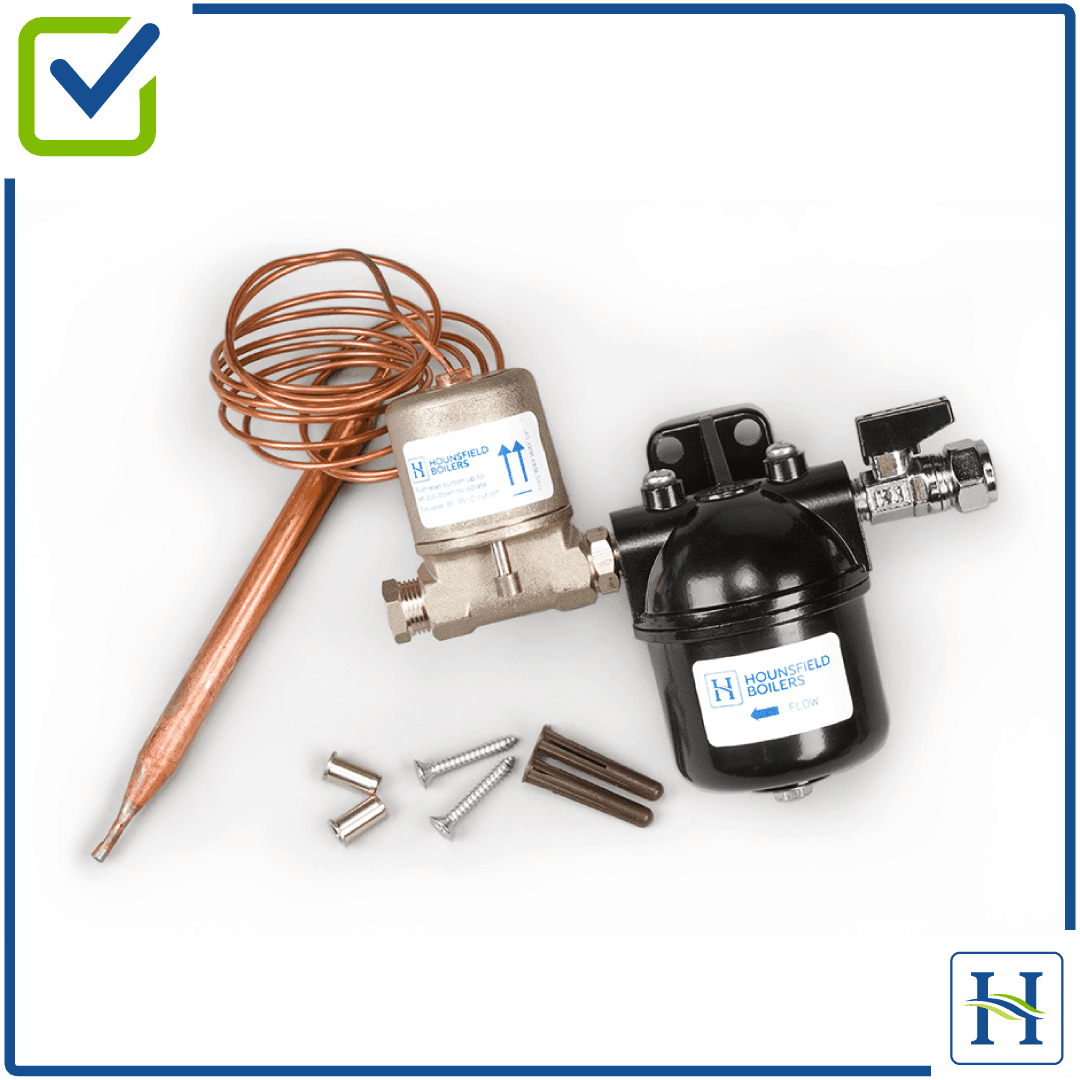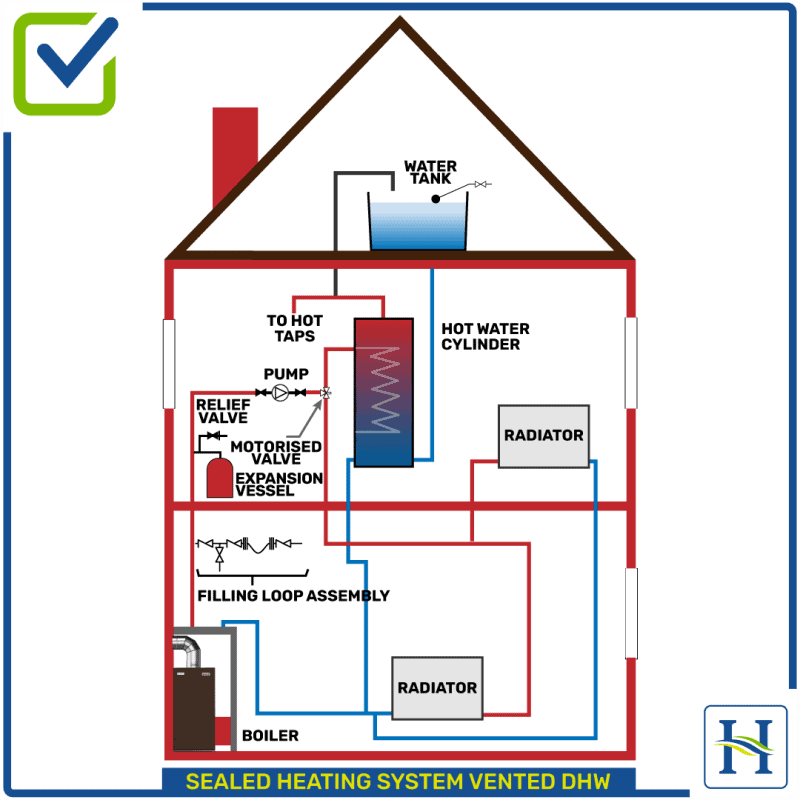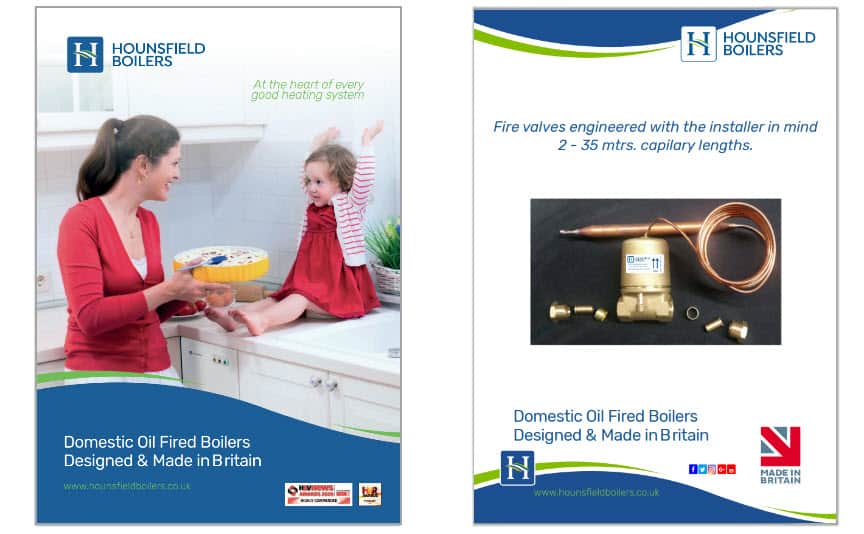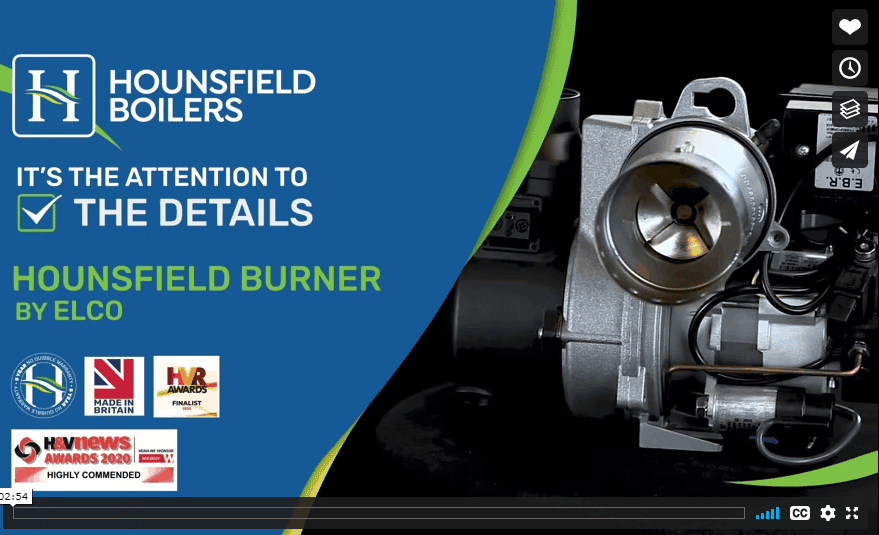as published in Heating and Plumbing Monthly.
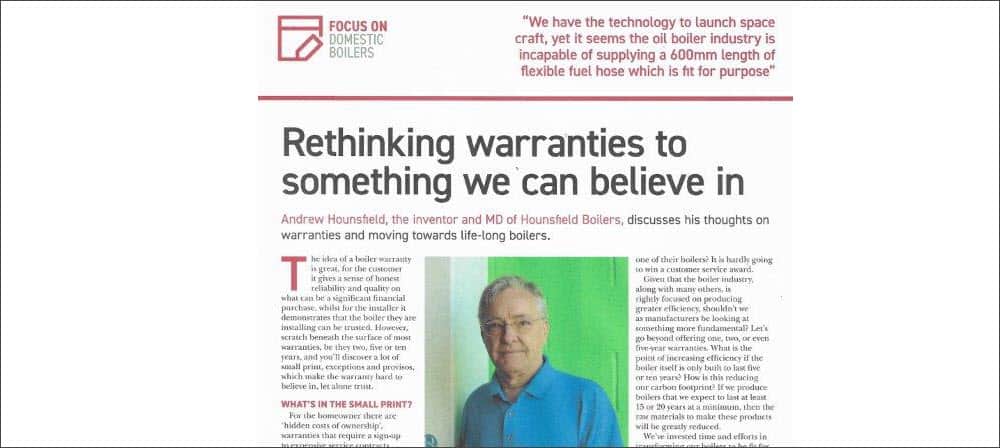
Andrew Hounsfield is the inventor and MD of the revolutionary Hounsfield Boilers, here he discusses his thoughts on warranties and moving forward to life-long boilers.
The idea of a boiler warranty is great, for the customer it gives a sense of honest reliability and quality on what can be a significant financial purchase, whilst for the installer it demonstrates that the boiler they are installing can be trusted. However, scratch beneath the surface of most warranties, be they two, five or ten years, and you’ll discover a lot of small print, exceptions and provisos, which make the warranty hard to believe in, let alone trust.
What’s in the small print?
For the homeowner there are ‘hidden costs of ownership’, warranties that require a sign-up to expensive service contracts, others with terms and conditions that require the purchase of annual service packs for components such as, electrodes, photocells even fuel pumps to be replaced during the warranty term; components, many in the industry would consider to be “non-service” items.
For the heating engineer warranty periods for flexible oil lines are a continual frustration. We have the technology to launch space craft yet it seems the oil boiler industry is incapable of supplying a 600mm length of flexible fuel hose which is fit for purpose.
Some new boilers are often supplied with hoses that need replacing after one years’ service. There’s a plethora of aftermarket (OEM & non OEM), so called long-life hoses on the market warranted for 2-3 years, carrying date codes that may well be partially expired by the time they reach the engineer let alone the home owner. These are not insignificant costs for the homeowner during the life time of a boiler replacing hoses every 2-3 years / regularly just to, comply with warranty terms, the industry wringing the max. out of the warranty.
In short, what should be the original equipment manufacturer’s responsibility is passed down-the-line to the engineer to ensure timely replacement. The cost of a leaking hose can lead to expensive insurance claims falling to the engineer’s insurer. An unacceptable, unjust situation which would cease if fit-for-purpose hoses were supplied by OEM’s. A good example of the industry creating a secondary income stream for spares parts.
A common annoyance is when a boiler fails a short time after the warranty expires, in other words the boiler has been constructed to last the warranty period. Cheap parts not designed for a long life soon fail. After 30 plus years in the boiler industry I have heard a lot of nightmare warranty stories, and too frequently none of them the fault of the homeowner or installer! Do boiler manufacturers really believe that a homeowner who has a bad experience with one of their products will really want to buy another or recommend one of their boilers? It is hardly going to win a customer service award!
Given that the boiler industry, along with many others, is rightly focused on producing greater efficiency, shouldn’t we as manufacturers be looking at something more fundamental? Let’s go beyond offering one, two, or even five-year warranties. What is the point of increasing efficiency if the boiler itself is only built to last five or ten years? How is this reducing our carbon footprint? If we produce boilers that we expect to last at least 15 or 20 years at a minimum, then the raw materials to make these products will be greatly reduced.
“We have the technology to launch space craft yet it seems the oil boiler industry is incapable of supplying a 600mm length of flexible fuel hose which is fit for purpose.
Boilers can be designed to make boiler servicing and the replacement of parts a lot easier. We can all expect some boiler parts to be replaced due to general wear and tear, but let’s make this simple to do, not hide parts in inaccessible areas behind something. If we use better quality components in the construction, then it may result in a small price increase to the customer, but this would be balanced against the cost of repair and a boiler with a short life span, whilst also reducing our carbon footprint. We’ve invested time and efforts in transforming our boilers to be fit for purpose well into the future. We use air-craft grade materials to ensure our boilers are built to last, but why aren’t OFTEC or the government calling upon all manufacturers to create products that last?
I know this could be revolutionary, but let’s all start designing and manufacturing products that customers can put their trust in. Forget about reading pages and pages of warranty terms and conditions. We, as manufacturers of boilers, should be proud of the boilers we make. I know I am of the boilers that our team produce. Let us as boiler manufacturers lead our industry and be ahead of other sectors.
Manufacturers need to stop designing products to last the warranty period, we even need to forget about long-life components and we need to move towards life-long boilers. This I believe is the way forward, it’s how I design my boilers. I hope it will only be a matter of time before governments decide that the only way to reduce our carbon footprint is to produce less by designing for longer life. We should be ahead of the pack and future legislation – I said this could be revolutionary!
Find out more
Hounsfield Boilers can be ordered via merchants or direct from the company. To discover more visit www.hounsfieldboilers.co.uk
Find out more about the Hounsfield Boilers’ range








